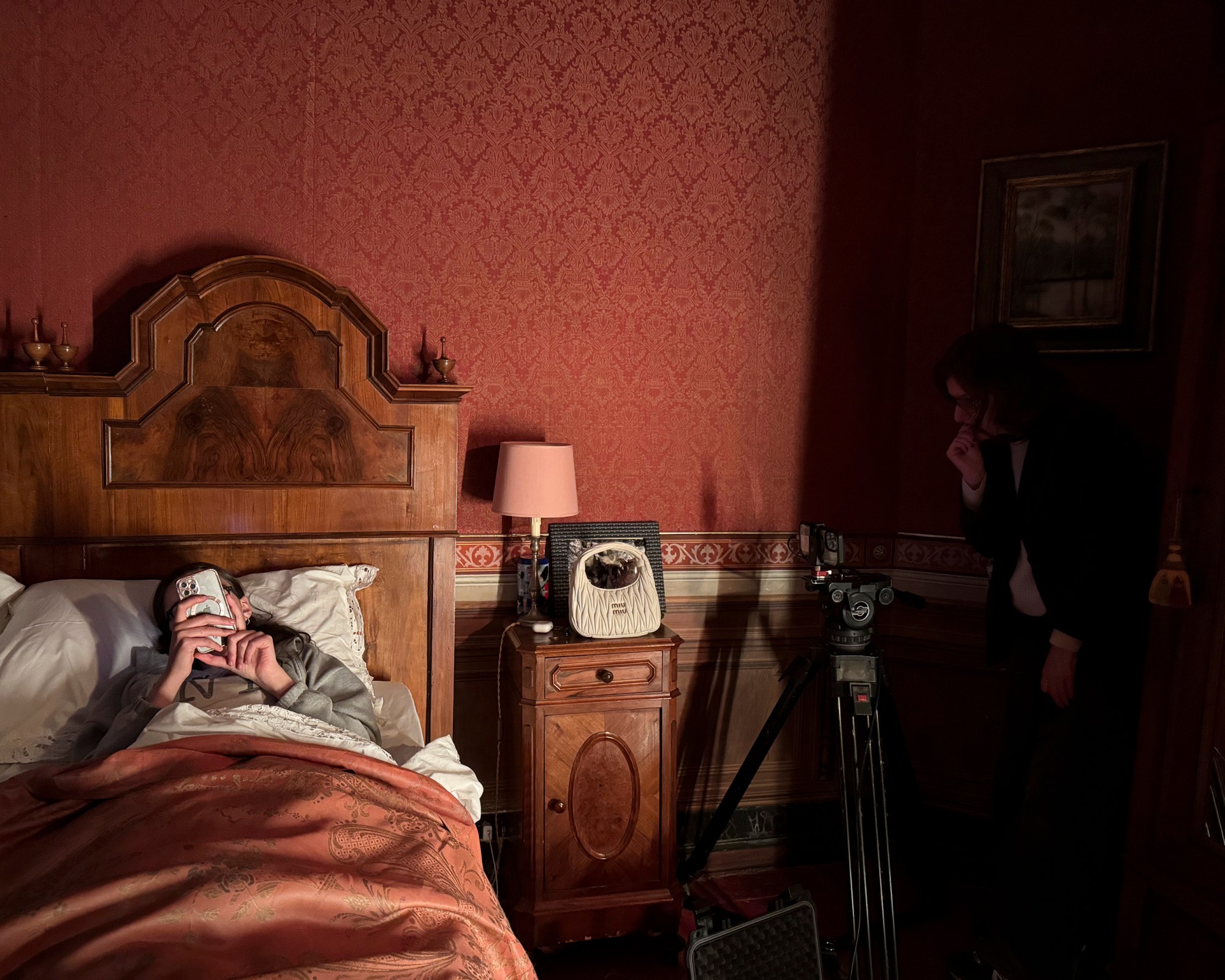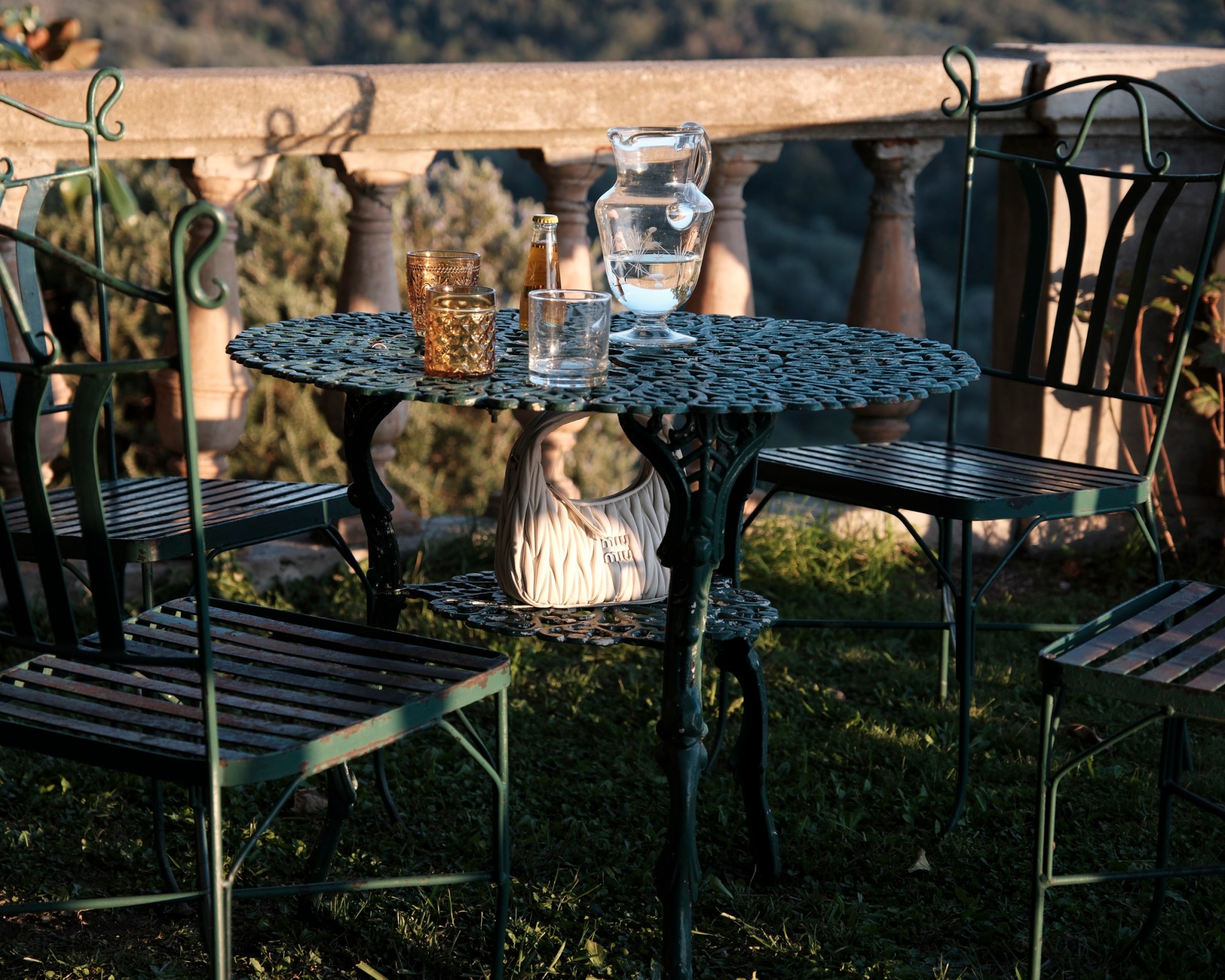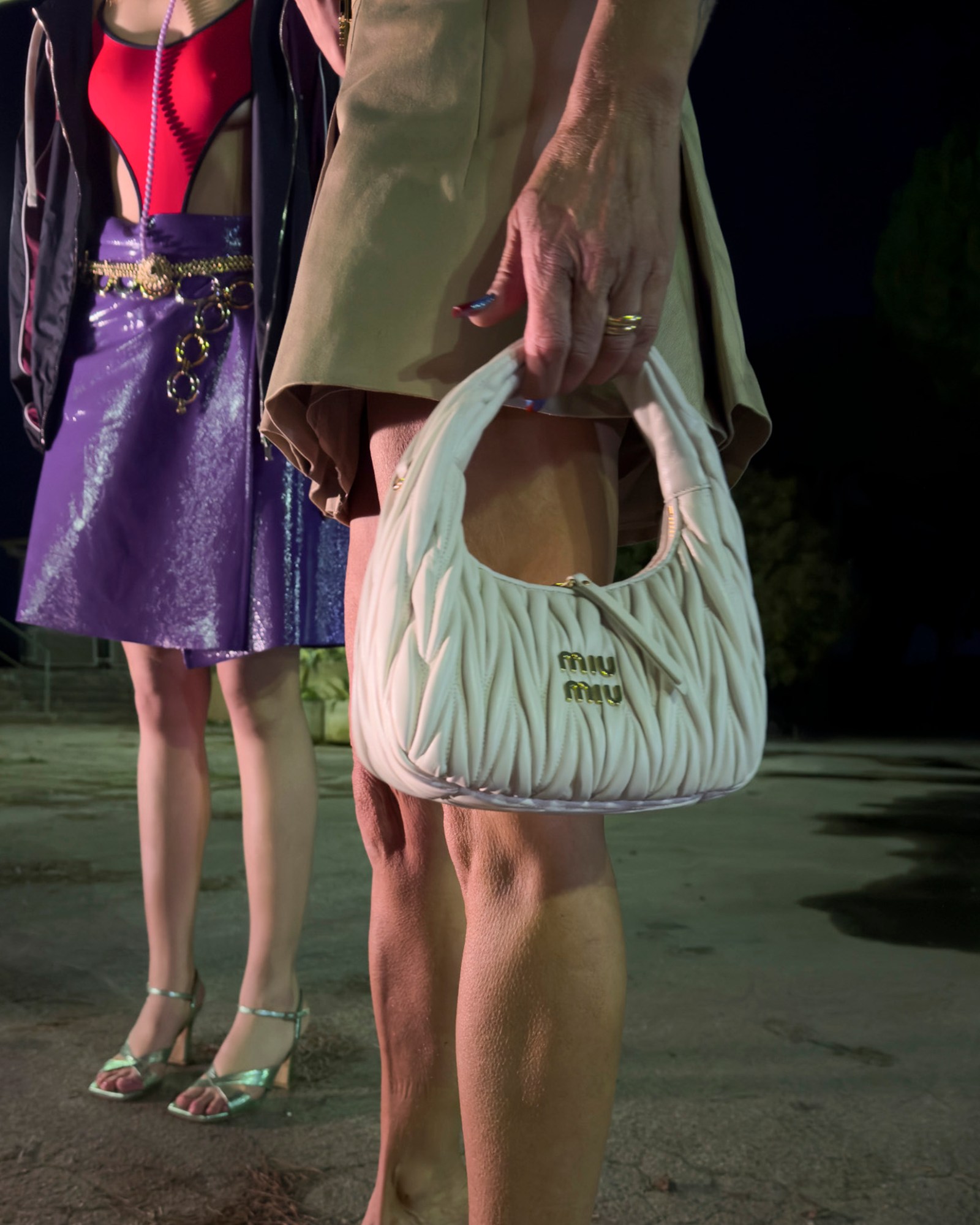Subject to the whims of the other? Convinced in your own blessings, talent, and value, but only imbued with meaning by circumstances outside of your control? Do these tragic motifs of the human experience sound familiar? The main character of Joanna Hogg’s newest addition to Miu Miu’s Women’s Tales film anthology could be any of us. Or it could be a handbag. Which it is. It’s a handbag.
Not since Oscar Wilde’s The Importance of Being Ernest has a handbag been imbued with such depth. I could practically hear Lady Bracknell’s screech (“A handbag Mr. Worthing?”) as the titular handbag in Autobiografia di una Borsetta—that’s Autobiography of a Handbag in Italian—is delivered into the world, blessed by an unknown creator. The bag will have its star turn at a premiere for the short film in London on February 13, joining a pantheon of It-Girls to have starred in Miu Miu Women’s Tales films from other female directors like Janicza Bravo, Chloë Sevigny, Crystal Moselle, and Miranda July.
The inspiration for Autobiografia di una Borsetta came in part from a forthcoming book her friend John David Rhodes co-wrote on cinematic props. “He uses lots of different films as examples of where the objects are in the foreground. You know, like Hitchcock’s film Rope, which is about a piece of rope and what happens to it. It made me think about what within the world of Miu Miu could take center stage. I quickly came to the handbag.” Equally pruney and freshly white, bestowed with wobbly speech of an elderly Italian woman (the entire 23 minute short is in Italian), the aptly named Wander purse has an immortal quality, both newborn and at the end of its life. Initially purchased as a present for an affluent young Italian girl, the bag is stolen from a life of sitting under lemon trees by the girl’s first love, aiding criminal offense to heartbreak, and ends up on an odyssey across Italy through the arms of various people with ill-intent. On directing the bag, Hogg tells me earnestly, “It was great. Takes direction well, is very open to experimentation. The perfect performer.” The space between the handle and the body of the bag (otherwise known as the armpit hole) often acts as an eye for the camera.

Props, personal and theatrical, are critical to Hogg. Her scripts are part collage—filled with words, pictures, and moments for improvisation. “I’m very bad at getting rid of anything, because usually if I buy something I fall in love with it, I don’t want to get rid of it, even when it starts to get holes in it, or moths eat it, so I hang on to things for for as long as possible, and then if I am going to get rid of something I’ll photograph it because I want to have a memory of it.” She pauses, considering her preternatural attachment to her stuff, an attachment that’s no doubt inspired her new film, “I like being surrounded by things and in a place that is familiar to me but that can happen very quickly. I could stay in a hotel room and become attached to the hotel room.”
Hogg is a filmmaker versed in mining her life for cinematic experience. The 64-year-old director director of The Souvenir series and 2024’s The Eternal Daughter, she has a wry English sense of humor (she was raised in London and is childhood pals with frequent muse Tilda Swinton) and a cleanness of speech that seems constantly self-edited, as if every sentence is a quest to perfect conversation. Her films are dreamlike and sumptuous—lengthy tales that take on the essential drama of life.
Watching the short film one is reminded of the inescapability of fate—around every corner is the potential for disaster, someone prepared to take advantage of you or even kill you. The handbag careens forward on a journey without an end with no ability to change course. Its uneasy relationship with destiny is an exploration into Hogg’s own feelings. “My relationship with fate is quite an anxious one. There’s a fine line for me in what I might think is someone’s fate or my fate, and being anxious or superstitious,” she says. Almost embarrassed, Hogg describes superstition inherited from her mother: Don’t toast with anything but alcohol, don’t stir in a glass with a knife. “Superstition and fate are very linked to me. I can’t let myself think about fate too much. Sometimes the superstition actually leads to an accident. Superstition is dangerous in itself.” What then, is an anxious handbag supposed to do?

In all of Hogg’s work there is a fuzziness between artist and audience, a surreal layering of awareness over experience. Maybe that manifests in a character making a movie that becomes the movie we’re watching, as in The Souvenir Part II. In the case of Tilda Swinton in The Eternal Daughter, an actor plays both mother and child. The Souvenir (the first film) most boldly pulls from the filmmaker’s life, a loosely autobiographical piece of cinema about an experience Hogg had in her twenties.
In some sense Autobiografia di una Borsetta is a departure—though it represents a continuation of these foundational questions of life and death, they manifest through an inanimate object, and in that, there is comedy. “I was completely free to express some of my fears of death, fear of nothingness, express those feelings in a way that is hopefully, not too serious either. I sort of wanted this film to have humor in it. But I also wanted to speak about important things. So it was a really interesting vehicle for me in which to pour some of my preoccupations,” Hogg told me. The result is a work that oscillates between humiliation and humor. Into the bag go a glock, a lipstick, keys, and also intense nihilism.
And yet relief can be found. In the title is a message. Calling the piece Autobiografia di una Borsetta—not Life of a Handbag, or Story of a Handbag or The Interior of a Handbag—gives this impotent object a creative voice. It’s a clear statement from a director dedicated to her own form of autofiction: In telling your story there is always redemption.
